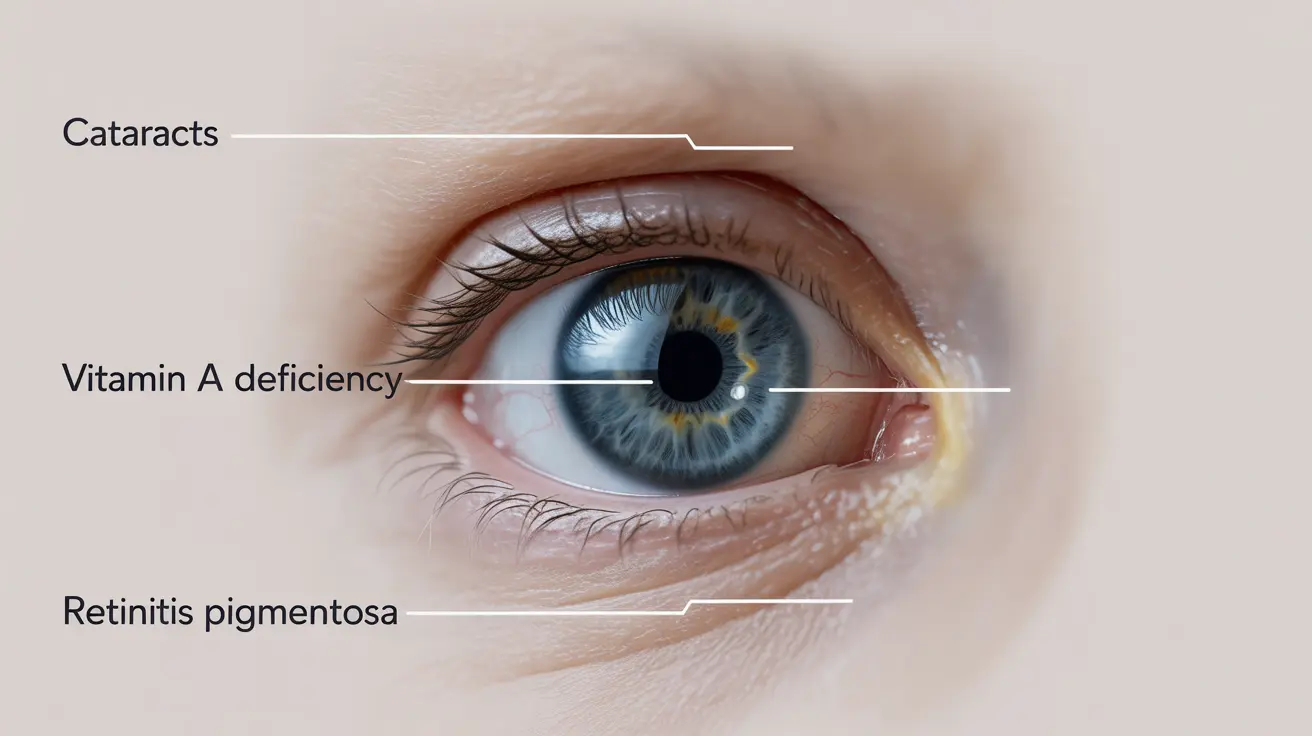Night blindness, also known as nyctalopia, is a condition that affects a person's ability to see clearly in low-light conditions. While not technically a disease itself, night blindness is often a symptom of underlying vision problems or eye conditions that can significantly impact daily life, particularly during evening hours or in dimly lit environments.
Understanding the causes, symptoms, and treatment options for night blindness is crucial for managing this condition effectively and maintaining safety during nighttime activities. This comprehensive guide explores everything you need to know about night blindness and how to address it.
Common Causes of Night Blindness
Night blindness can develop from several different underlying conditions:
Vitamin A Deficiency
One of the most common and treatable causes of night blindness is vitamin A deficiency. This essential nutrient plays a crucial role in maintaining healthy retinal function and producing photopigments necessary for night vision.
Retinitis Pigmentosa
This inherited genetic condition causes progressive degeneration of the retina's rod photoreceptors, which are responsible for vision in dim lighting conditions. Night blindness is often one of the earliest symptoms of this disorder.
Cataracts
The clouding of the eye's natural lens can significantly reduce the amount of light reaching the retina, making it particularly difficult to see in low-light conditions.
Other Contributing Factors
- Nearsightedness (myopia)
- Glaucoma
- Diabetic retinopathy
- Certain medications
- Recent eye surgery
Diagnosis and Testing
Proper diagnosis of night blindness typically involves a comprehensive eye examination and several specialized tests:
Visual Acuity Testing
Standard eye charts help determine overall vision quality and identify any refractive errors that might contribute to night vision problems.
Dark Adaptation Testing
This specialized examination measures how well your eyes adjust from bright to dim lighting conditions, providing valuable information about your night vision capabilities.
Additional Diagnostic Tools
- Electroretinography (ERG)
- Genetic testing (for inherited conditions)
- Blood tests (to check vitamin A levels)
- Dilated eye examination
Treatment Approaches
Treatment options for night blindness vary depending on the underlying cause:
Corrective Measures
For cases related to refractive errors or cataracts, corrective lenses, glasses, or surgery may be recommended to improve overall vision, including night vision.
Nutritional Interventions
When vitamin A deficiency is the cause, dietary changes and supplementation can significantly improve night vision. Foods rich in vitamin A include:
- Sweet potatoes
- Carrots
- Spinach
- Beef liver
- Eggs
Managing Underlying Conditions
Treatment of conditions like glaucoma or diabetic retinopathy may help prevent further deterioration of night vision.
Lifestyle Adaptations and Safety Measures
While managing night blindness, several practical steps can help ensure safety:
- Use extra lighting in dim environments
- Avoid driving at night when possible
- Install night lights in hallways and bathrooms
- Keep flashlights readily available
- Consider using mobility aids in dark conditions
Frequently Asked Questions
What are the most common causes of night blindness and how do they affect vision in low light?
The most common causes of night blindness include vitamin A deficiency, cataracts, retinitis pigmentosa, and nearsightedness. These conditions affect vision in low light by either reducing the eye's ability to process light effectively or by blocking light from reaching the retina properly.
How is night blindness diagnosed and what tests can determine its underlying cause?
Night blindness is diagnosed through comprehensive eye examinations, including visual acuity tests, dark adaptation testing, and electroretinography. Blood tests may also be conducted to check vitamin A levels, and genetic testing might be recommended for inherited conditions.
What treatment options are available for night blindness caused by cataracts, nearsightedness, or vitamin A deficiency?
Treatment options vary by cause: cataracts may require surgery, nearsightedness can be corrected with glasses or contact lenses, and vitamin A deficiency can be addressed through dietary changes and supplementation.
Can dietary changes or vitamin A supplements help improve night blindness?
Yes, when night blindness is caused by vitamin A deficiency, increasing intake of vitamin A-rich foods or taking supplements under medical supervision can significantly improve night vision.
What lifestyle changes or precautions can help manage night blindness and improve safety in dark environments?
Key precautions include using additional lighting, avoiding night driving, installing night lights, carrying flashlights, and maintaining well-lit pathways. Regular eye check-ups and proper management of underlying conditions are also essential.




